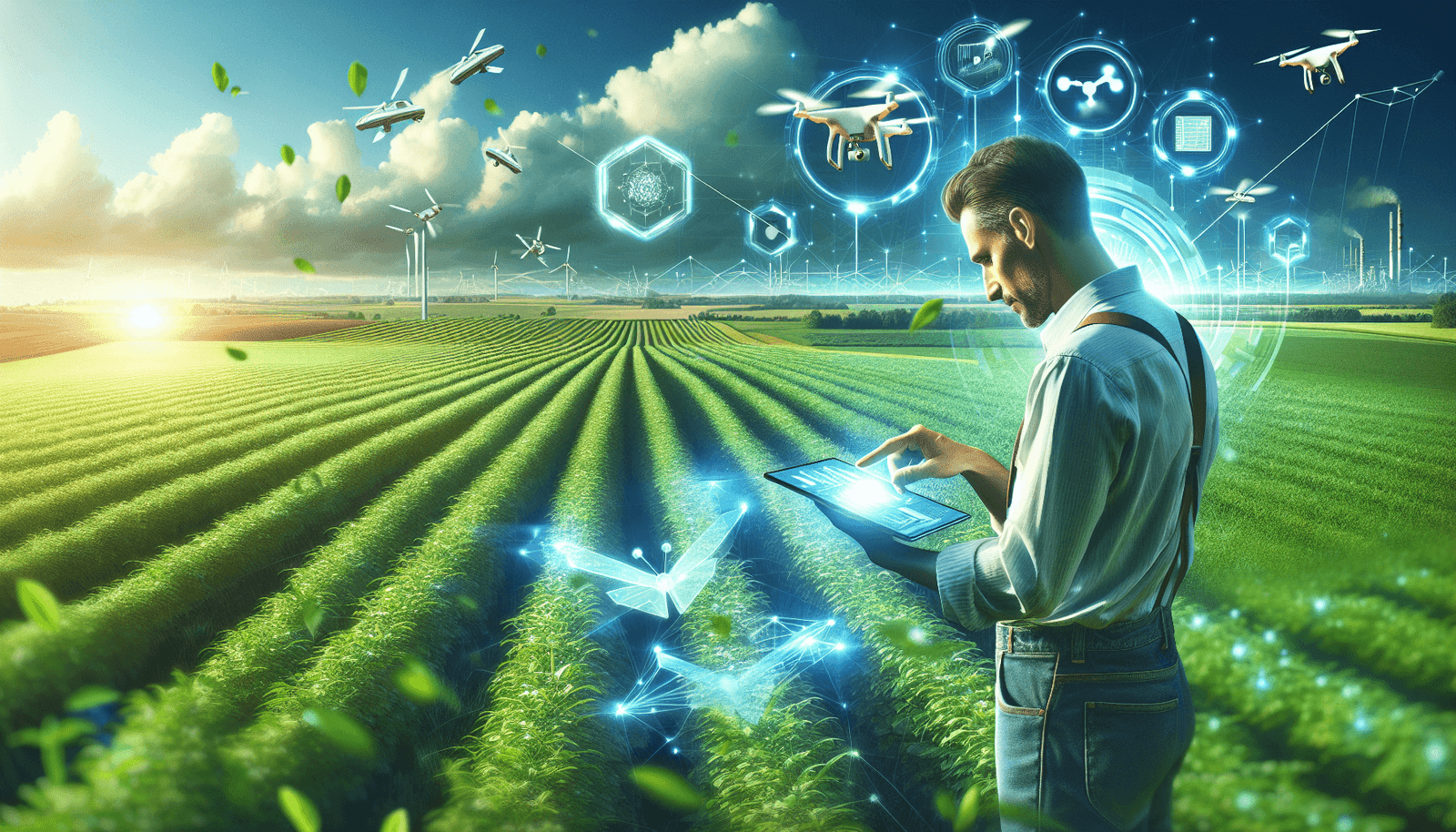Using AI to Optimize Processes in Agriculture
In recent years, the agricultural industry has witnessed a revolutionary shift towards precision agriculture, leveraging artificial intelligence to optimize various processes. By integrating advanced AI technologies, farmers can enhance crop monitoring capabilities, allowing for the timely identification of health issues and environmental stressors. Furthermore, irrigation automation powered by AI ensures that water resources are used efficiently, promoting sustainable farming practices. This convergence of technology and agriculture not only maximizes yields but also minimizes resource wastage, paving the way for a more productive and environmentally friendly future in farming.
Precision Agriculture: The Backbone of Modern Farming
Precision agriculture is a comprehensive farming strategy that utilizes advanced technologies, including AI, GPS, and data-driven insights, to optimize crop production. This approach is fundamentally about using the right amount of resources in the right place at the right time, thereby enhancing productivity and reducing costs.
Key Components of Precision Agriculture
- Variable Rate Technology (VRT): This technology allows farmers to adjust input application rates such as fertilizers, pesticides, and seeds across fields based on soil variability. VRT optimizes yields while reducing costs and environmental impact.
- Remote Sensing Technologies: Satellites and drones provide crucial data on crop health, moisture levels, and nutrient status. This information helps farmers make informed decisions for effective crop management.
- Precision Irrigation Systems: Equipped with VRT, these systems deliver water more efficiently based on factors like soil moisture and weather forecasts, enhancing water savings and crop yields.
The Role of AI in Crop Monitoring and Management
AI is transforming crop monitoring and management by providing real-time insights into crop health and environmental conditions.
Real-Time Monitoring
AI-powered drones equipped with high-resolution cameras and sensors capture real-time data about crop conditions. This data is processed by AI algorithms to identify areas that require attention, such as pest infestations, nutrient deficiencies, or diseases. Early detection allows farmers to take precise actions to protect their crops and maximize yields.
Predictive Analytics
AI algorithms analyze historical data, weather patterns, and soil conditions to predict future outcomes. For instance, they can forecast crop yields, helping farmers make informed decisions regarding planting, harvesting, and marketing their produce. Predictive analytics also assist in optimizing irrigation schedules, reducing water usage, and minimizing environmental impact.
Irrigation Automation with AI
Irrigation automation is a critical aspect of precision agriculture, and AI plays a pivotal role in this process.
Efficient Water Use
AI-powered irrigation systems use real-time data from sensors, satellites, and weather forecasts to determine the optimal amount of water needed for each section of the field. This ensures that water resources are used efficiently, reducing waste and promoting sustainable farming practices.
Precision Irrigation Systems
Systems like drip irrigation, equipped with VRT, deliver water based on factors like soil moisture and weather forecasts. This approach enhances water savings and crop yields, making farming more efficient and environmentally friendly.
Autonomous Farm Machinery and AI
Autonomous farm machinery is another area where AI is making significant strides.
Self-Driving Tractors and Combines
AI-driven autonomous tractors and combines use computer vision and GPS technology to navigate fields and perform tasks like planting, weeding, and harvesting. This increases efficiency, reduces labor costs, and minimizes errors in farm operations. Companies like John Deere have introduced fully autonomous tractors, which are expected to become more prevalent by 2030.
Automated Sorting and Cultivation
Robots equipped with AI can perform automated sorting tasks, such as sorting potatoes for defects, and use AI-enhanced cultivators to plant seeds and remove weeds from fields. These technologies can effectively replace dozens of human workers, enhancing productivity and reducing labor costs.
Soil Health Management with AI
Maintaining soil health is crucial for optimal crop growth, and AI is instrumental in this process.
Real-Time Soil Monitoring
AI-powered soil sensors continuously monitor soil conditions, including moisture levels and nutrient content. This data allows farmers to adjust their fertilization and irrigation strategies in real-time, ensuring optimal soil health and crop growth.
Nutrient Analysis
AI algorithms can analyze the chemical composition of soil samples to determine which nutrients may be lacking. This information helps farmers make precise adjustments to their fertilization strategies, optimizing crop yields and minimizing resource wastage.
Supply Chain Optimization and AI
AI also plays a vital role in optimizing the entire agricultural supply chain.
Tracking and Inventory Management
AI helps in tracking the freshness of produce, managing inventory levels, and reducing food wastage. AI-driven logistics systems ensure that crops reach consumers in the freshest and most efficient manner possible.
Market Demand and Price Forecasting
AI can analyze market demand and forecast prices, helping farmers determine the optimal times for sowing and harvesting. This predictive capability enables farmers to make better decisions at every stage of the crop cultivation process.
The Future of Agriculture: AI’s Potential
As AI continues to advance, its potential in precision agriculture remains virtually limitless. Here are some key areas where AI is expected to make a significant impact:
Addressing Global Challenges
AI has the power to address some of the most pressing challenges facing the agricultural industry, including feeding a growing global population, mitigating the effects of climate change, and ensuring sustainable farming practices.
Continued Innovation
The synergy between AI and agriculture will continue to drive innovation. With the integration of AI technologies, farmers will be able to make more accurate decisions, reduce resource usage, and increase productivity. This will redefine the future of farming, making it more efficient, sustainable, and productive.
Conclusion
The integration of AI in precision agriculture is a monumental shift in the way we approach farming. It is not just a tool but a catalyst for positive change in an industry that is essential to our survival. As AI technologies continue to evolve and become more accessible, their integration into agriculture will undoubtedly shape the future of farming.
For more information on how AI is transforming agriculture, visit Neyrotex.com.
As the agricultural sector continues to embrace AI, the future looks promising for a more sustainable, efficient, and productive farming industry. For further insights into AI-driven agricultural solutions, visit Neyrotex.com.






